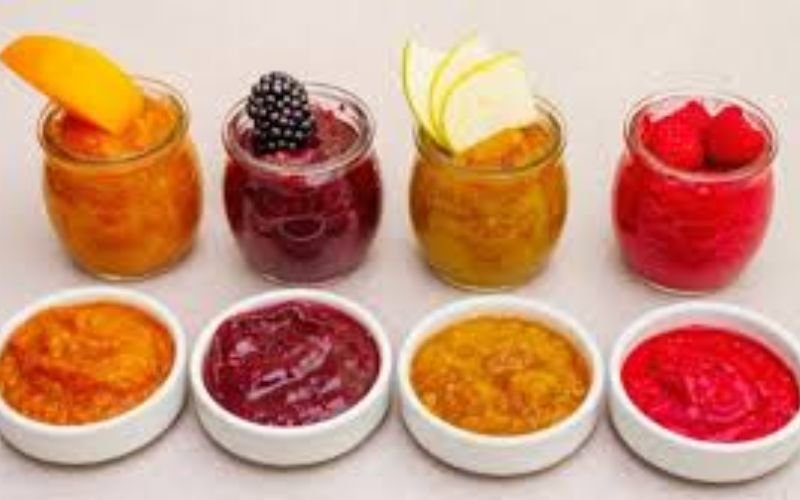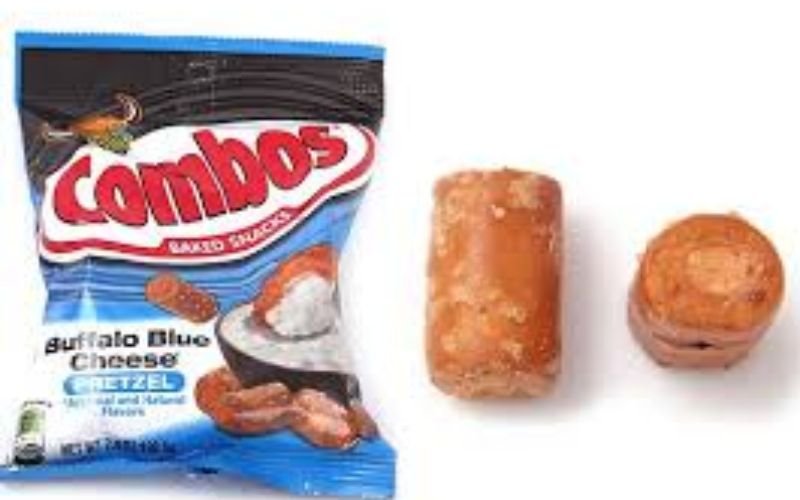Feeding your baby is one of the most important journeys in parenthood. The right food not only helps your little one grow healthy but also builds their taste and eating habits for life. Many parents worry about what to feed their babies, when to start solids, and how to prepare safe, nutritious meals.
This article will guide you through a wide variety of homemade baby food recipes, organized by age and stage of development. From smooth purees for beginners to finger foods for toddlers, you’ll find recipes that are easy to prepare, nutritious, and baby-approved.
Stage 1 Baby Food Recipes (4–6 Months) – Simple Purees

At this stage, babies are usually starting solids and should begin with smooth, single-ingredient purees.
1. Apple Puree
- Ingredients: 1 apple, ½ cup water
- Instructions: Peel and chop apple. Steam until soft, then blend into a smooth puree. Add a little water if needed.
2. Carrot Puree
- Ingredients: 2 small carrots, water
- Instructions: Steam or boil carrots until soft. Blend with water until smooth.
3. Banana Mash
- Ingredients: 1 ripe banana
- Instructions: Mash banana with a fork until smooth. Serve immediately (no cooking needed).
4. Sweet Potato Puree
- Ingredients: 1 medium sweet potato
- Instructions: Bake or steam sweet potato, scoop flesh, and puree until smooth.
5. Pear Puree
- Ingredients: 1 pear
- Instructions: Peel, steam, and blend into a smooth puree.
Stage 2 Baby Food Recipes (6–8 Months) – Flavorful Combos

Babies at this stage can handle thicker textures and mixed flavors.
6. Apple & Carrot Puree
- Ingredients: 1 apple, 1 carrot
- Instructions: Steam both together, then blend into a smooth or slightly textured puree.
7. Banana & Avocado Mash
- Ingredients: ½ banana, ½ avocado
- Instructions: Mash together until creamy.
8. Rice Cereal with Breast Milk or Formula
- Ingredients: 2 tbsp rice cereal, ½ cup breast milk or formula
- Instructions: Mix well and serve warm.
9. Pumpkin & Sweet Potato Puree
- Ingredients: ½ cup pumpkin, ½ sweet potato
- Instructions: Steam and blend into a smooth puree.
10. Oatmeal with Fruit
- Ingredients: 2 tbsp oats, ½ banana or apple
- Instructions: Cook oats, add mashed fruit, blend into a soft porridge.
Stage 3 Baby Food Recipes (8–12 Months) – Textured & Finger Foods

At this age, babies start chewing and can handle more textures.
11. Mashed Lentils with Rice
- Ingredients: 2 tbsp lentils, 2 tbsp rice
- Instructions: Cook together until soft, mash with a fork, and serve warm.
12. Soft Vegetable Khichdi
- Ingredients: 2 tbsp rice, 1 tbsp lentils, small carrot, few peas
- Instructions: Cook all together until very soft. Mash lightly.
13. Chicken & Veggie Puree
- Ingredients: Small piece of chicken breast, carrot, potato
- Instructions: Boil until tender, shred chicken, blend with veggies into a thick puree.
14. Egg Yolk Mash
- Ingredients: 1 boiled egg yolk, little breast milk
- Instructions: Mash yolk and mix with milk to soften.
15. Soft Fruit Cubes (Finger Food)
- Ingredients: Mango, papaya, ripe pear, soft banana
- Instructions: Cut into small bite-sized cubes for self-feeding.
Toddler-Friendly Recipes (12+ Months)
Toddlers can eat a wide variety of foods, but meals should still be soft, healthy, and easy to chew.
16. Mini Vegetable Pancakes
- Ingredients: ½ cup grated zucchini, ½ cup grated carrot, 1 egg, 2 tbsp flour
- Instructions: Mix all, cook small pancakes on a non-stick pan until golden.
17. Soft Pasta with Veggie Sauce
- Ingredients: Small pasta, tomato, carrot, zucchini
- Instructions: Cook pasta until soft. Make a simple veggie sauce and mix.
18. Mashed Potato with Spinach
- Ingredients: 1 potato, handful spinach
- Instructions: Boil potato and spinach. Mash together with a little butter.
19. Chicken & Rice Soup
- Ingredients: Chicken broth, rice, carrot, small chicken pieces
- Instructions: Cook everything until very soft. Serve warm.
20. Yogurt with Fruit
- Ingredients: ½ cup plain yogurt, mashed banana or berries
- Instructions: Mix and serve as a healthy snack.
Tips for Preparing Baby Food Safely
- Always wash hands, utensils, and vegetables properly.
- Avoid salt, sugar, and strong spices for babies under 1 year.
- Introduce one new food at a time to check for allergies.
- Store purees in small portions and refrigerate for up to 24 hours.
- Use fresh, seasonal fruits and vegetables.
Baby Meal Planning Ideas
A simple weekly plan makes feeding stress-free:
- Breakfast: Fruit puree or cereal with milk
- Lunch: Vegetable puree, khichdi, or rice with lentils
- Snack: Banana, yogurt, or avocado mash
- Dinner: Soft porridge, mashed potatoes, or soup
Rotate recipes to keep meals exciting and balanced.
Conclusion
Feeding your baby doesn’t have to be complicated. With simple ingredients and a little preparation, you can create healthy, delicious meals at home. From smooth purees for early months to finger foods for toddlers, every stage can be filled with variety and nutrition. These recipes not only support growth but also help develop a love for wholesome foods from the very beginning.
FAQs
1. When should I start solid foods for my baby?
Most babies can start solids at around 6 months, but always check with your pediatrician.
2. Can I add salt or sugar to baby food?
No. Avoid salt and sugar for babies under 1 year as their kidneys and taste buds are still developing.
3. How can I store homemade baby food?
Store in airtight containers in the refrigerator for up to 24 hours, or freeze in small portions.
4. What foods should I avoid for babies?
Avoid honey (before 1 year), whole nuts, cow’s milk as a drink, salty or spicy foods, and choking hazards.
5. Can I introduce meat and eggs?
Yes, from around 8 months you can introduce well-cooked meats and mashed egg yolk.
6. How do I know if my baby is allergic to a food?
Introduce one new food at a time and watch for signs like rash, vomiting, or diarrhea. If they appear, stop the food and consult a doctor.